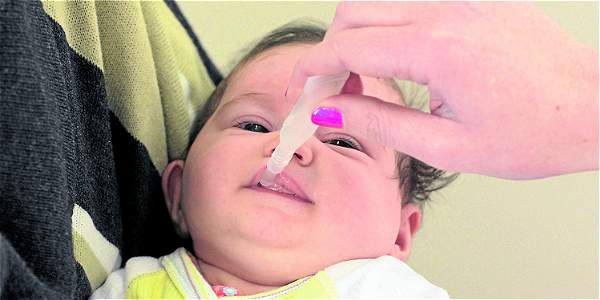54% of children were not vaccinated against measles in 2017
The 2017 survey revealed that 30% of the mothers consulted in the study had not been able to immunize their children with the BCG vaccine to protect them against lung diseases when they are newborns. In addition, 60% of mothers said they did not apply the first dose of antirotavirus, which is the most common cause of severe diarrhea in children up to 5 years old; 70% had not protected against polio and 40% lacked the hepatitis B vaccine, which is applied at birth.

Vulnerable mothers. In 2016, after the dissemination of epidemiological bulletins after 15 months censored by the Ministry of Health, it was known that 756 mothers died at the time of delivery, which represented an increase of 65.79 %%. Encovi researchers elucidated the conditions in which mothers enter the delivery room and the reasons why the chances of dying are increasing.
Each year 500,000 births are reported, but 45,000 mothers are at risk. The sample of respondents revealed that 86.8% is controlled in the first trimester, 11.4% begins medical control after the fourth month of pregnancy and 3.4% decides to go to the doctor after the eighth month of pregnancy. Almost 80% of the poorest mothers do not begin their evaluation in the first month of pregnancy and 60% at 2 months of gestation.
"25,000 pregnant women are not controlling their pregnancy for the past year, that represents 5% of the total," said González.
Venezuelan Health Observatory researcher Marianella Herrera warned of an increase in babies born with low birth weight, who are linked to mothers who suffer from malnutrition during pregnancy.
Herrera noted that 8,115,000 women have epigenetic risks, which can be transmitted to newborns by the deficit of iron consumption, control of poor pregnancy and lack of food supplements, which ignites the alarms of infant and maternal mortality in the country .
Herrera noted that the survey revealed that 33% of women under 18 years of age are exposed to a deficient diet pattern, and that 80% of them are exposed to food insecurity. Women of childbearing age lost 10.5 kilos during 2017.
The Encovi research still processes data emanating from the visit to the same 6,168 households that surveyed in 2016 to measure how the economic, health and food crisis has affected these years, when hyperinflation worsened.